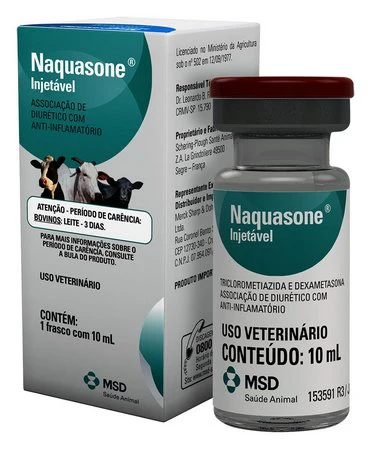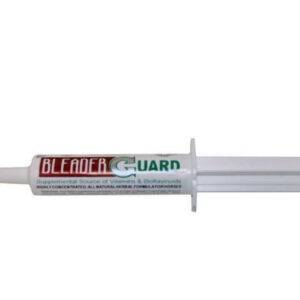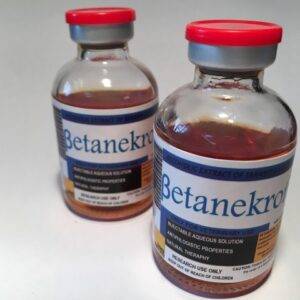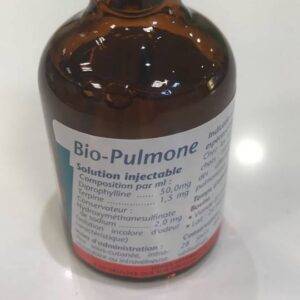Naquasone for horses
Naquasone Injectable Solution is a prescription veterinary medication manufactured by Intervet Canada Corp. (subsidiary of Merck & Co.) specifically designed for treating inflammatory conditions in horses. Naquasone for horses contains trichlormethiazide USP, and dexamethasone acetate USP. It combines the effective diuretic activity of trichlormethiazide with the specific anti-inflammatory activity of dexamethasone for complementary action in the reduction of physiological inflammatory edematous conditions of the equine
Active Ingredients and Formulation
Dual-Action Formula:
Each mL contains trichlormethiazide USP 10 mg, dexamethasone acetate USP 0.55 mg as active ingredients and benzyl alcohol 26.14 mg as a preservative.
Primary Components:
Trichlormethiazide: 10 mg/mL (potent diuretic)
Dexamethasone Acetate: 0.55 mg/mL (anti-inflammatory corticosteroid)
Benzyl Alcohol: 26.14 mg/mL (preservative)
Mechanism of Action
Diuretic Component:
The mechanism of action by which trichlormethiazide affects diuresis in edematous conditions is by an inhibitory effect on the reabsorption of sodium and chloride in the renal tubules, thereby enhancing excretion of sodium, chloride and water, while apparently having a considerably lessened and more temporary effect on the excretion of potassium and bicarbonate. Naquasone for horses
Anti-Inflammatory Component:
The corticoid dexamethasone possesses anti-inflammatory activity. Clinical experience shows that edema is greatly reduced following parenteral treatment with 20 mL of NAQUASONE injectable solution.
Indications for Horses
Primary Use:
Horses: NAQUASONE injectable solution is indicated for the treatment of inflammatory conditions of the horses.
Specific Applications:
Based on clinical studies, Naquasone is effective for:
Inflammatory Edema: Various types of swelling conditions
Bruising: Post-trauma inflammatory responses
Traumatic Wounds: Inflammatory edema associated with injuries
Allergic Reactions: Inflammatory responses to allergens
Local Infections: Associated inflammatory edema
Post-Surgical Edema: Swelling following surgical procedures
Dosage and Administration
Equine Dosing Protocol:
Horses: 0.5 mL/45 kg (100 lb) of body weight intramuscularly. Administer the first two doses 12 hours apart, followed by two additional doses at 24 hour intervals. The extent and duration of treatment will depend upon the severity of the condition and response to medication. Treatment must be administered for at least two days. Naquasone for horses
Detailed Treatment Schedule:
Dose: 0.5 mL per 45 kg (100 lb) body weight
Route: Intramuscular injection
Initial Phase: Two doses 12 hours apart
Continuation: Two additional doses at 24-hour intervals
Minimum Duration: 2 days of treatment
Flexibility: Duration adjusted based on severity and response
Available Forms
Current Formulations:
Tri-Dex (Naquasone) 200mg/5mg/5ml Paste (6 doses each) is made from Trichlormethiazide, a diuretic, and Dexamethasone, a corticosteroid, and can be in the treatment of edema in horses.
Available Options:
Injectable Solution: 100 mL vials for professional administration
Oral Paste: Now it comes in a paste called Trichlormethiazide Naquasone for horses
Clinical Efficacy
Research Results:
Clinical trials in Canada evaluated Naquasone in 66 horses with inflammatory edema, showing impressive results:
Good Response: 75.8% of cases
Fair Response: 18.2% of cases
Poor Response: Only 1.5% of cases
Comparative Studies:
Both trichlormethiazide/betamethasone products were significantly more effective than Lasix or the placebo.
Safety Profile
Clinical Safety Studies:
Clinical studies with NAQUASONE injectable solution in horses did not suggest any adverse effects.
Overdose Safety:
The effect of two and six times the recommended dose of NAQUASONE injectable solution (trichlormethiazide and dexamethasone) for once or twice the recommended time was determined in mares. NAQUASONE injectable solution was administered by intramuscular injection. The drug treatment produced immediate signs of steroid activity. These signs persisted for 7-14 days after treatment. There were no untoward physiological effects associated with NAQUASONE injectable solution treatment. Naquasone for horses
Contraindications and Precautions
Important Restrictions:
Do not administer to pregnant mares.
Animals with severe renal function impairments should be checked for hyperkalemia and acidosis, since therapy with benzothiadiazine diuretics like trichlormethiazide may be contraindicated in these patients.
Additional Cautions:
Potent Medication: It must always be kept in mind that dexamethasone is an extremely potent drug with profound physiological effects
Close Observation: Animals receiving the drug should be under close veterinary observation
Infection Masking: May mask signs of infection due to anti-inflammatory effects
Wound Healing: Potential delay in wound healing should be considered
Food Animal Restrictions
Important Warning:
Horses: This drug is not to be administered to horses that are to be slaughtered for use in food.
Pharmacology
Superior Diuretic Profile:
Studies in man and experimental animals show that trichlormethiazide causes a favourable pattern of less potassium excretion than chlorothiazide or hydrochlorothiazide. The clinically determined saluretic potency of trichlormethiazide is estimated to be 10 to 20 times that of hydrochlorothiazide and correspondingly 100 to 200 times that of chlorothiazide. Naquasone for horses
Complementary Action:
The saluretic action of trichlormethiazide together with the anti-inflammatory activity of dexamethasone provide a complementary effect. Edema is relieved through accelerating water transport from the engorged tissue spaces without serious effects on systemic sodium levels or local electrolyte balance.
Storage and Availability
Storage Requirements:
Store between 15° and 30°C.
Product Supply:
NAQUASONE injectable solution, 100 mL vials.
Professional Use
Naquasone represents a scientifically-formulated combination therapy offering both diuretic and anti-inflammatory benefits for managing various inflammatory edematous conditions in horses. Its proven efficacy, favorable safety profile, and dual-action mechanism make it a valuable tool in equine veterinary medicine for treating inflammatory conditions requiring both edema reduction and anti-inflammatory support. Naquasone for horses





Reviews
There are no reviews yet.